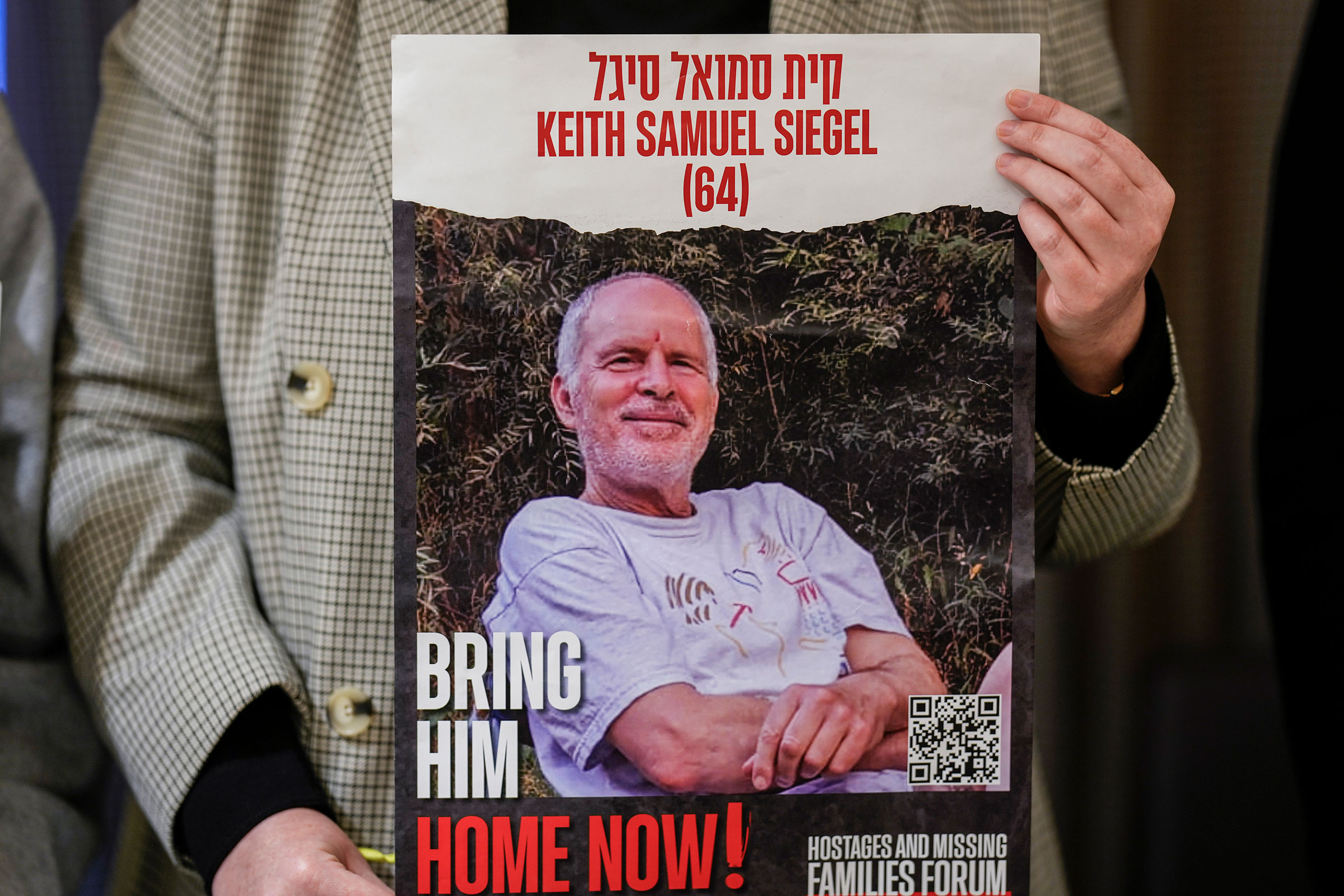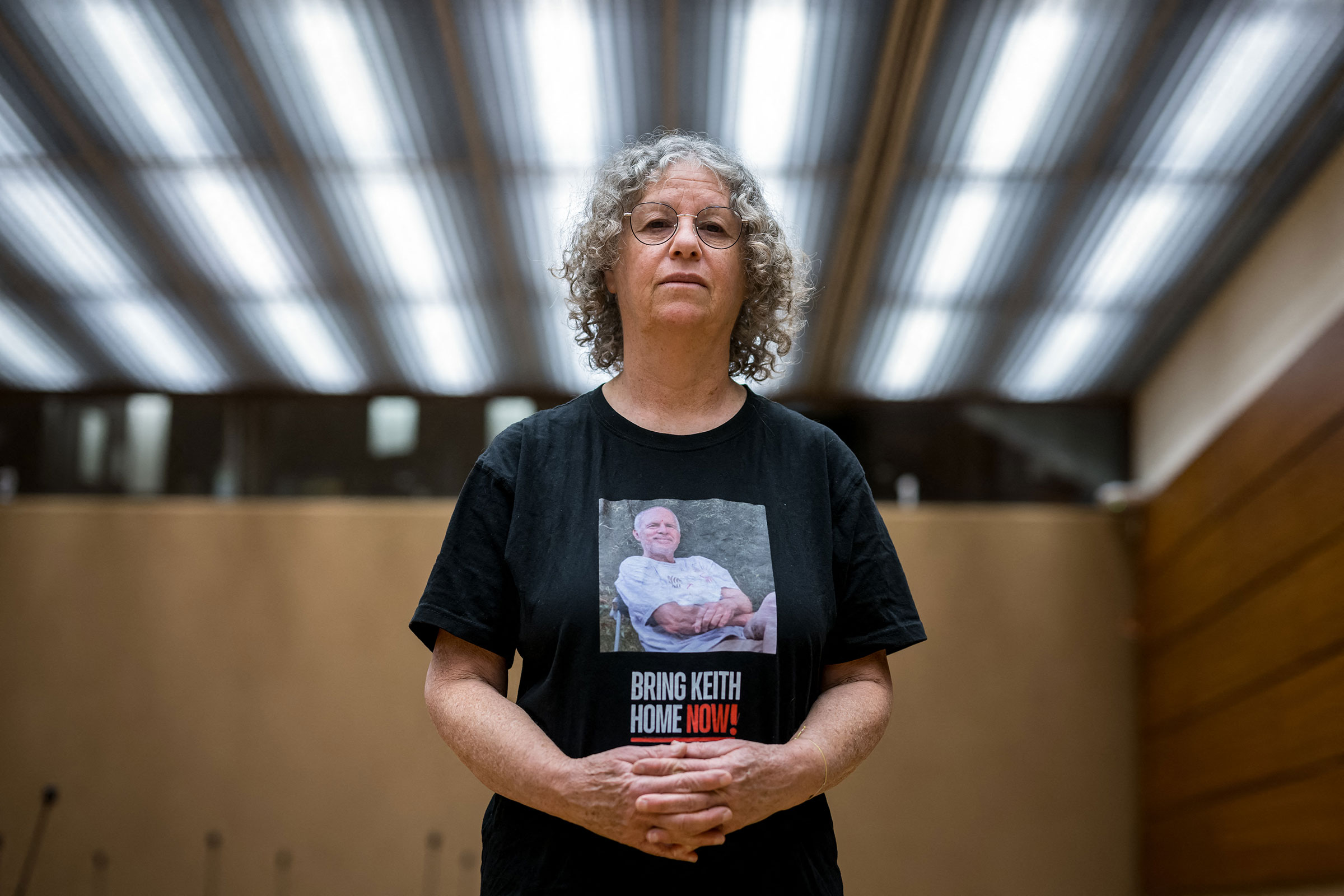
A few months ago, my six-year-old daughter asked me, “Is there a war in Israel?” “Yes,” I said, as I braced myself for the next question. While we are Americans, she knows that much of our family—my aunts, uncles, and cousins—live in Israel. “Has anyone died because of the war?” she asked next, and I answered truthfully. “Yes,” I said, “Sadly, many people have died.” “Has anyone in our family been killed?” she asked. “No,” I said, but I didn’t know how much longer I would be able to give that answer.
When Oct. 7 happened, my family was shocked along with the rest of the world. Israel is more than a nation for Jews—its existence is a source of comfort for all of us who know the history and trauma of our people. Since my uncle Keith and his wife Aviva moved to Kibbutz K’far Aza in the 1980s, there have been rockets fired and skirmishes—even occasional bombings or stabbings. The Middle East is not known for its stability. But nothing has ever occurred in Israel at the level that it did that day. The amount of planning, the synchronized action with motorbikes and gliders, the extreme violence against civilians—all of it was beyond what our collective mind would allow us to envision.
In the first 24 hours, we learned of the kidnappings and, after hours of trying to reach Keith and Aviva, we began to understand that our nightmare had just begun. A few days later, we saw video evidence that they had been abducted along with over 250 hostages. I was thankful that they were alive and that they appeared to be together. But I was fearful of how they were being treated at the hands of a group who had killed 1,200 people, including children.
Read More: The Families of Israelis Held Hostage by Hamas Speak Out
As I have learned, each family trapped in this unthinkable situation starts to negotiate in their own minds. I told myself that because Keith and Aviva were grandparents and civilians, their captors would realize their mistake, and set them free. Then I told myself that because Keith is an American, they would release them quickly. Surely, Hamas doesn’t want a problem with Uncle Sam. But after a while, all of us families began to understand that the kidnapping has little to do with the person who has been taken. The hostages were all taken because of a political goal. And that realization left us feeling helpless and caught up in a political dynamic that put our loved ones on a list among many other things that this side or that side wants.

Long before Oct. 7, the U.S. government learned that lumping in hostage release negotiations with various policy issues was the wrong approach. So in 2015, a new structure to help free detained citizens and to treat their freedom as a separate issue from other government priorities was set up.
But the Netanyahu government has not learned that lesson, and that’s what scares me most. The hostage crisis is a humanitarian one. Yet as I try to reunite my family, and bring Keith home, I have no choice but to look at the politics that are dictating whether he lives or dies. There is only one party responsible for the devastation that occurred on Oct. 7, and that is Hamas. But today, the Netanyahu government is a major obstacle to securing a deal for all the hostages to come home. The Prime Minister is ultimately responsible for the largest intelligence failure in Israeli history. Netanyahu’s future in power is undoubtedly in question, unless he can “win” the war against Hamas. The group has said repeatedly that they want a ceasefire that will lead to a political settlement of the war and, in exchange, they will release the hostages. But if that happens, Netanyahu does not win on his terms, an outcome he seems unwilling to accept.
What he has failed to realize, but what is abundantly clear to the families of hostages, Israelis and Gazans alike, and the international community, is that there is no winning here. Tens of thousands of innocent lives, most of them Palestinian, have been lost in the name of a status quo that is politically untenable, broadly unsafe for all civilians, and inhumane. Here, Mr. Netanyahu has a choice—one that will ultimately define his legacy. He could be remembered as the leader who ran on security yet oversaw the biggest security failure in Israeli history. A leader who perpetrated a war that left at least 30,000 Palestinians dead yet failed to bring the remaining hostages—136 from 25 countries—home in the quest to destroy Hamas. Or he could choose to make a deal that brings the hostages home and puts his country on a path to a more secure future, one with the potential to fundamentally change the entire region for the better.
In November, my aunt Aviva was freed from Hamas captivity after 51 excruciating days. Somehow, she insists that progress can and will happen—and she is now leading our family in our quest to bring Keith home. Recently, thanks to the relentless work of the U.S., Qatari, and Egyptian governments, along with the extraordinary advocacy of the families of hostages, a proposal was delivered to Hamas that would bring all of the hostages home, and hopefully start us on a path to peace in the region.
Read More: From Gaza, Stories of Loss and Grief
On Feb. 6, the U.S. and Qatar announced that Hamas had accepted the deal in principle and efforts were underway to work out remaining details. So now, we wait. We know that Keith is waiting, and hoping, too. Hoping he won’t be in the wrong spot when a bomb goes off. Hoping he can survive another day in the tunnels. Hoping that he’ll see his family again.
“Why is there a war in Israel?” That was my daughter’s final question to me that day. “There are many reasons,” I said. “But war and violence is never the answer.” We need leadership that is focused on the needs of its citizens over all other interests. Many international leaders, but especially President Joe Biden and his committed team, have shown this kind of leadership over these past months. I hope that Mr. Netanyahu will soon follow.
More Must-Reads from TIME
- Cybersecurity Experts Are Sounding the Alarm on DOGE
- Meet the 2025 Women of the Year
- The Harsh Truth About Disability Inclusion
- Why Do More Young Adults Have Cancer?
- Colman Domingo Leads With Radical Love
- How to Get Better at Doing Things Alone
- Michelle Zauner Stares Down the Darkness
Contact us at letters@time.com